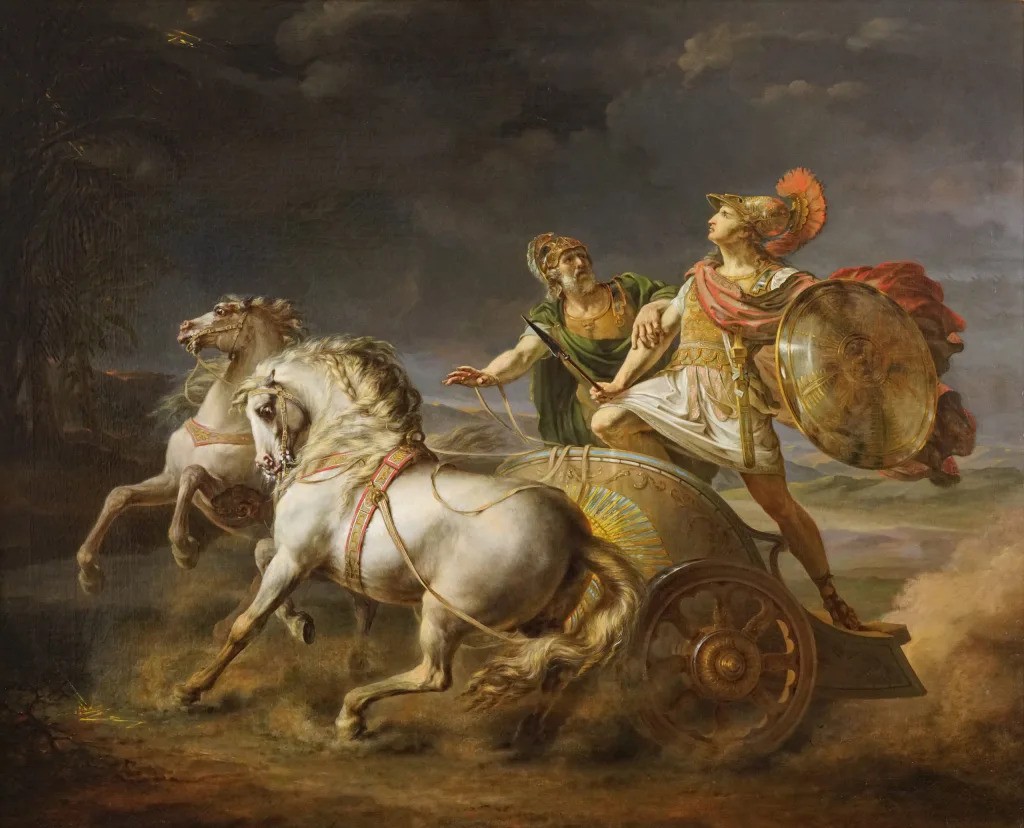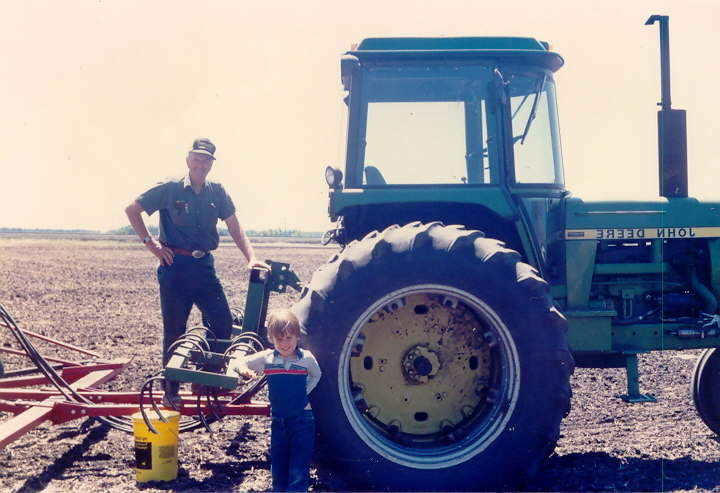Ancient Perspectives on Knowledge Transfer
For this activity, imagine that you're transported 3,000 years back in time to a small Greek community. You're sitting by a campfire as a traveling poet performs the Iliad, a story of heroes from an even more distant past than you're imagining now. These heroes possess abilities beyond those of the Greeks you're imagining yourself beside, representing an idealized vision of human potential.
The Iliad shows how people recognized the importance of intergenerational knowledge sharing. The wisdom of elders has been valued across civilizations and eras, serving as a bridge between past and future.
Wisdom from Homer's Iliad
Nestor, the oldest Greek commander in the Iliad, shares stories of past battles to guide younger warriors:
"Mightiest were these of men reared upon the earth... with those men could no one fight of the mortals now upon the earth."
Through his stories, Nestor not only shares tactical knowledge but preserves the cultural memory of his time. This illustrates how storytelling has always been a vehicle for transferring wisdom between generations.
Nestor also reflects on the ephemeral nature of human existence, emphasizing why preserving knowledge across generations matters:
"Like the generations of leaves, the lives of mortals"
This quote reminds us that people come and go, but the things they teach us can last.

Nestor, the aged counselor from Homer's Iliad, cautioning the warrior Diomedes.
Reflection Question
How is Nestor like the elders in your own community? What could be lost if their stories aren’t shared?
Personal Reflections: Lessons Beyond Words
A Story About My Grandpa

Me with my grandfather in Manitoba, early 1980s
I grew up on a farm, with my grandpa working the land around us. He would take me on tractor rides while he worked (I don't think he thought of them as "tractor rides"), and I'd often fall asleep while I sat on the armrest of the tractor seat, my head leaning against the window. Eventually, he'd be done and have to carry me home through the fields.
On these occassions, my grandpa would take me into town to the coffee shop. He'd visit with his friends and let me get either a drink or a donut - never both (what a choice! who isn't thirsty after a donut?).
Years later, when I was in my twenties and starting my own family and in need of support, my grandpa helped me out without hesitation. When I offered to work out a repayment plan, he simply said, "There's no need to worry about that."
There was no explicit lesson included in these experiences. He modelled a type of behaviour that he believed in without ever needing to say why. Nevertheless, I tell my children this story regularly in a way to remind that its important to save for whats important and that I will always be there to help them when they need it.
The Importance of Shared Spaces
This personal story illustrates how physical spaces can be spaces for intergenerational learning and value transmission. The lessons weren't delivered through formal instruction but through shared experience in specific environments.
Memory gardens operate on a similar principle. They create intentional spaces where multiple generations can gather, interact, and share experiences. The physical elements of these spaces serve as prompts for stories, skills, and values to be passed from one generation to the next.
"When I designed my own memory garden, I included elements that reminded me of my grandparent's' farm: a small pond to represent the dugout where my cousin would catch frogs (I was more than happy to just watch), grain plantings to represent the fields where I walked, and my grandma's lilac bushes. These physical elements trigger memories and stories I can share with others, preserving not just facts but values across generations."
Your Turn: Reflect on Spaces of Learning
Think about spaces that have facilitated knowledge transfer in your own life. This could be a kitchen where cooking techniques were shared, a backyard where you tossed around a ball, or any environment where you learned important lessons from elders.